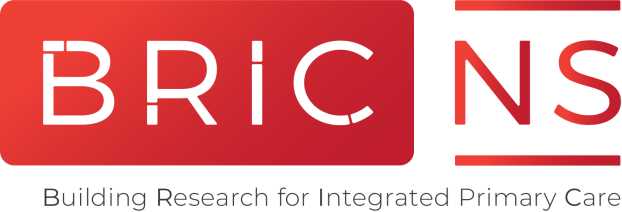Registration for Primary Health Care Research day is closed.
When: June 17, 2019
Where: Collaborative Health Education Building (CHEB), 5793 University Ave.
Dalhousie University Campus
Anyone with an interest in primary health care research is encouraged to register for this event!
- Patients and caregivers are encouraged to attend. Please register by applying for the patient bursary
- If your abstract submission is accepted, you will still have to register for the event
- Registration must be completed online, in advance
Cost:
Clinicians, Health Professionals, Decision Makers and Researchers: $130
Medical Residents: $75
Students, Patients, Caregivers and Citizens: $50
Register now!
To register: Registration Portal
To apply for a patient bursary: Patient Bursary
Registration is open until May 31, 2019. Registration has closed.
Brewing Ideas
From 8:15 – 9:00 am, we will have pre-conference, round table discussions called “Brewing Ideas.” The purpose of this session is to provide an opportunity to create new, collaborative research teams with the goal of creating a research question and applying for research funding. In this format, small groups will have the opportunity to discuss an idea and to come up with next steps for moving the idea forward. BRIC NS will help these groups set up future meetings and make connections with other people who may be interested in the topic.
Each topic is limited to 15 people. To encourage diverse views, seats will be allocated to members of different groups. When registering or applying for a patient bursary, please indicate if you would like to be put on the wait list for either topic. We will confirm your participation in advance of Primary Health Care Research Day.
Topic 1
How do we implement patient-centred care in primary care practice?
Providing patient-centred care can include things like involving patients in decisions about treatment and treating patients as individuals, not just as people with a medical condition. Both patients and health care providers agree that patient-centred care is an important part of the health care system. However, defining patient-centred care, and measuring whether it is being done, has been difficult. Finding ways to increase the uptake of patient-centred care in primary health care can help patients have better experiences while receiving care.
Potential areas for discussion:
- How can we define patient-centred care?
- How would we measure whether it is happening or not?
- How can patients and health care providers work together to improve patient-centred care?
Topic 2
Patient Engagement in Knowledge Translation: Emerging opportunities
In order to use what we know, we need to get the results of research to people who make decisions about health policy and healthcare. This process is called Knowledge Translation (KT). A big part of knowledge translation includes sharing research findings with a variety of audiences. Traditional dissemination activities include presenting at conferences or publishing in peer-reviewed journals. However, these outlets are often inaccessible to patients and the language used in research is often filled with jargon and difficult to understand for people outside of the field. More targeted KT strategies are beginning to be utilized, such as engaging patients through meetings, workshops and social media.
As patient engagement in research increases, roles and opportunities for patients to take part in and inform KT activities also increases. The purpose of this session will be to explore these opportunities.
Potential areas for discussion:
- What roles have patients traditionally played in KT?
- What are the opportunities for new or increased roles?
- How can the results of research be more effectively shared with the participants of the project, the people the research is meant to help and the general public?
Patients Included
Primary Health Care Research Day is proud to be a Patients Included conference. In order to qualify, five clauses have been met to ensure meaningful patient engagement. Read our Patient Charter.
We are also pleased to offer a bursary program to make it easier for patients, caregivers and citizens to attend. At least two bursaries will be given which will cover registration, travel costs, accommodations and some meals.
All patients and citizens should register by applying for the bursary.
Apply for the bursary here: Patient Bursary

